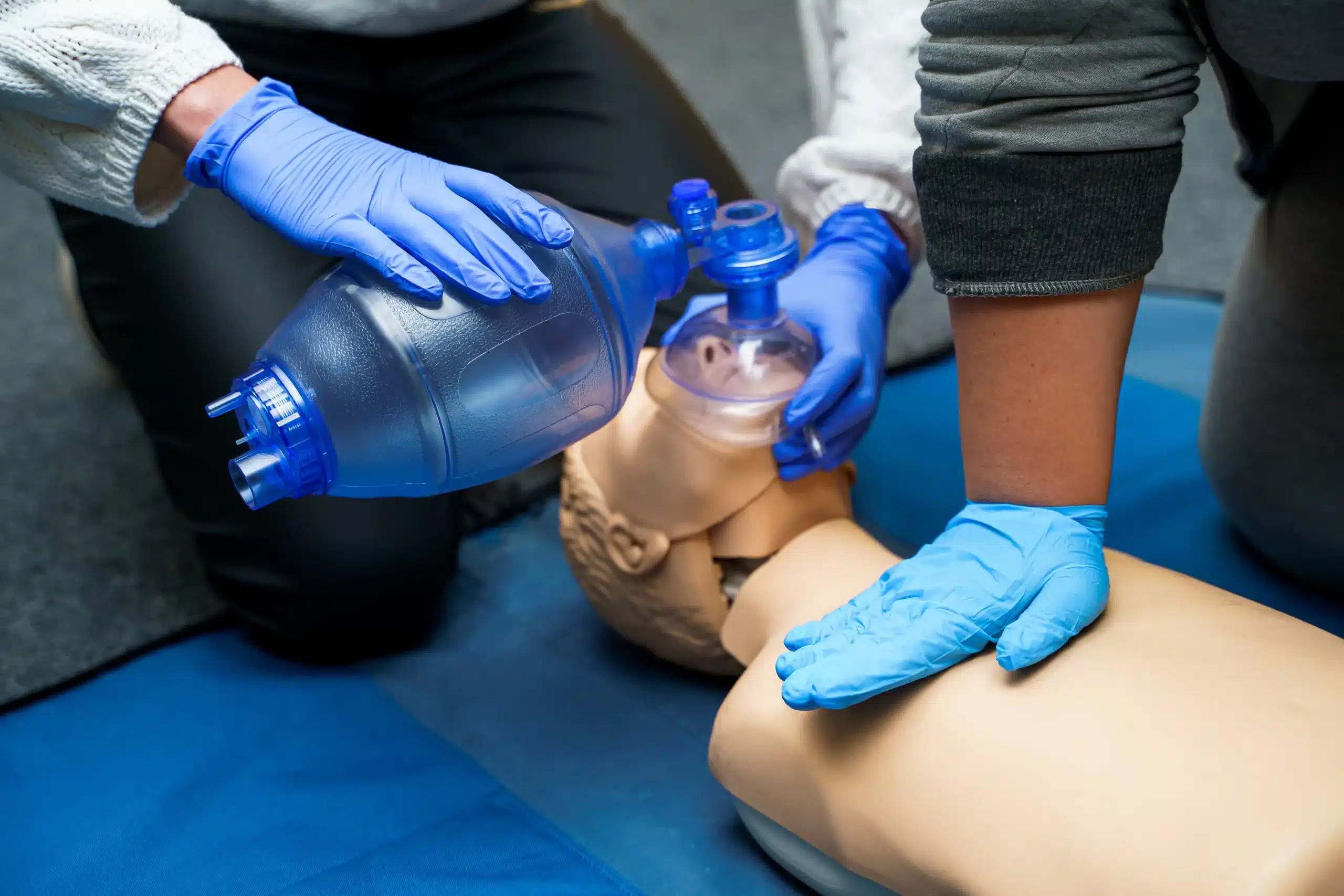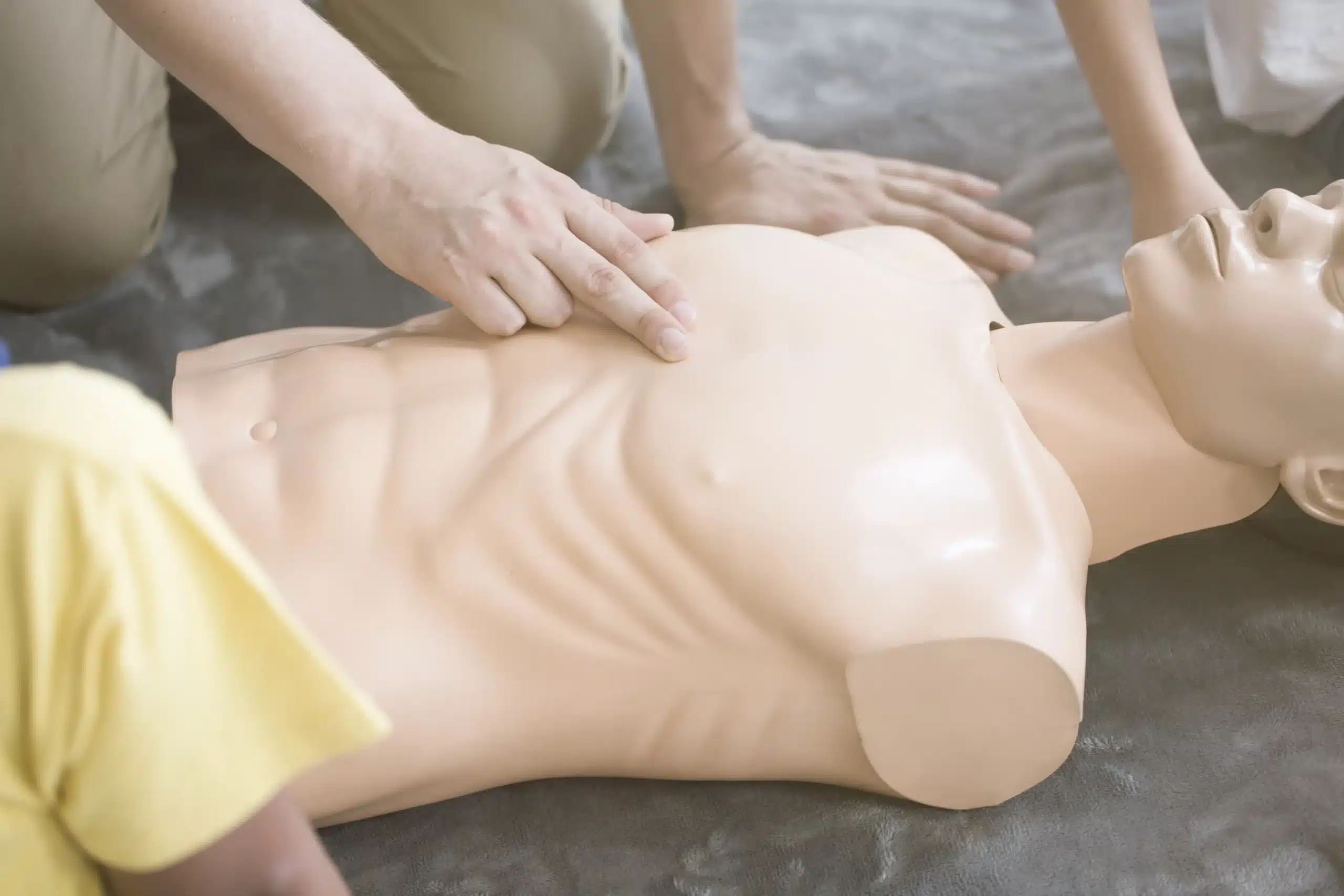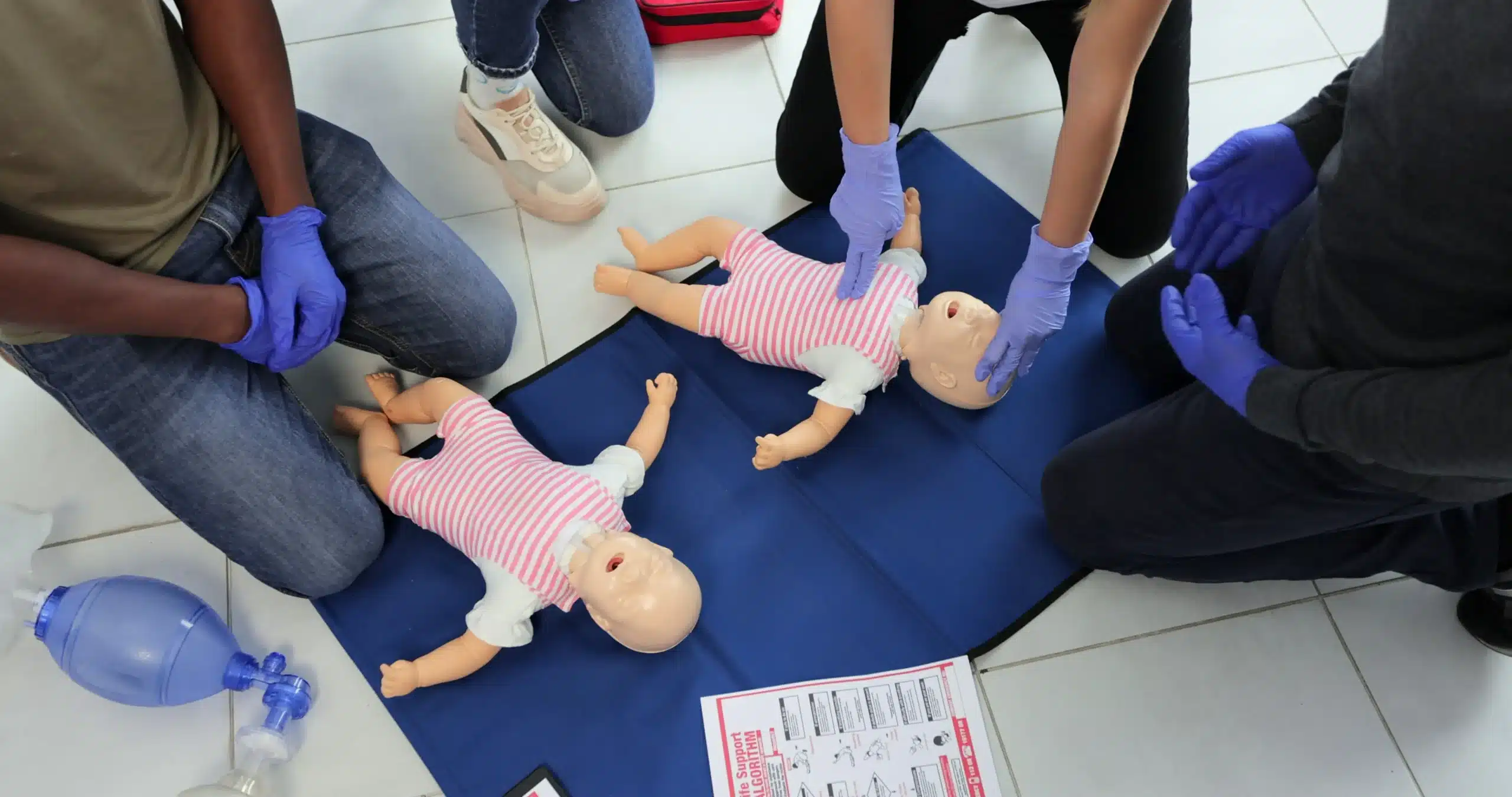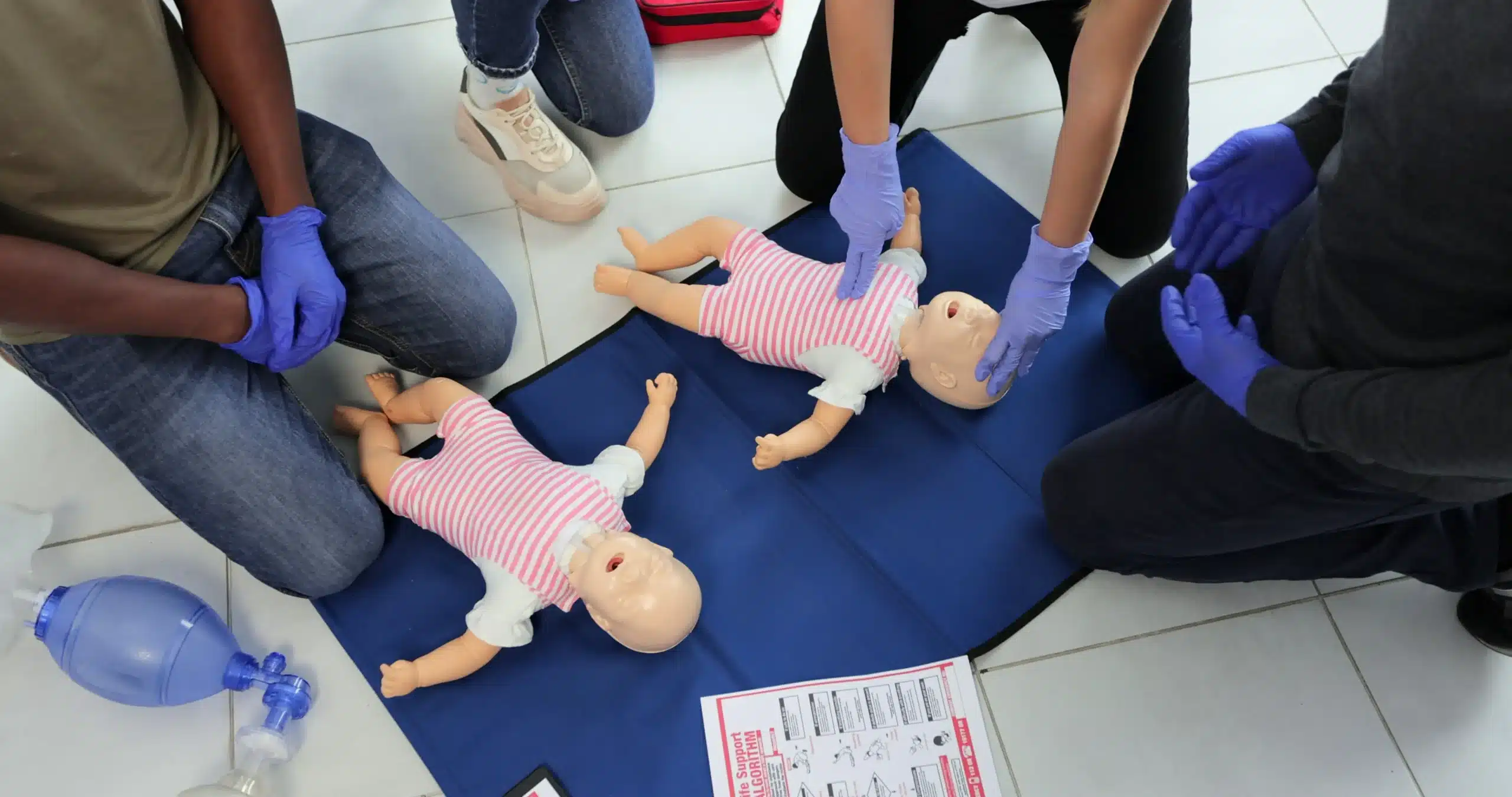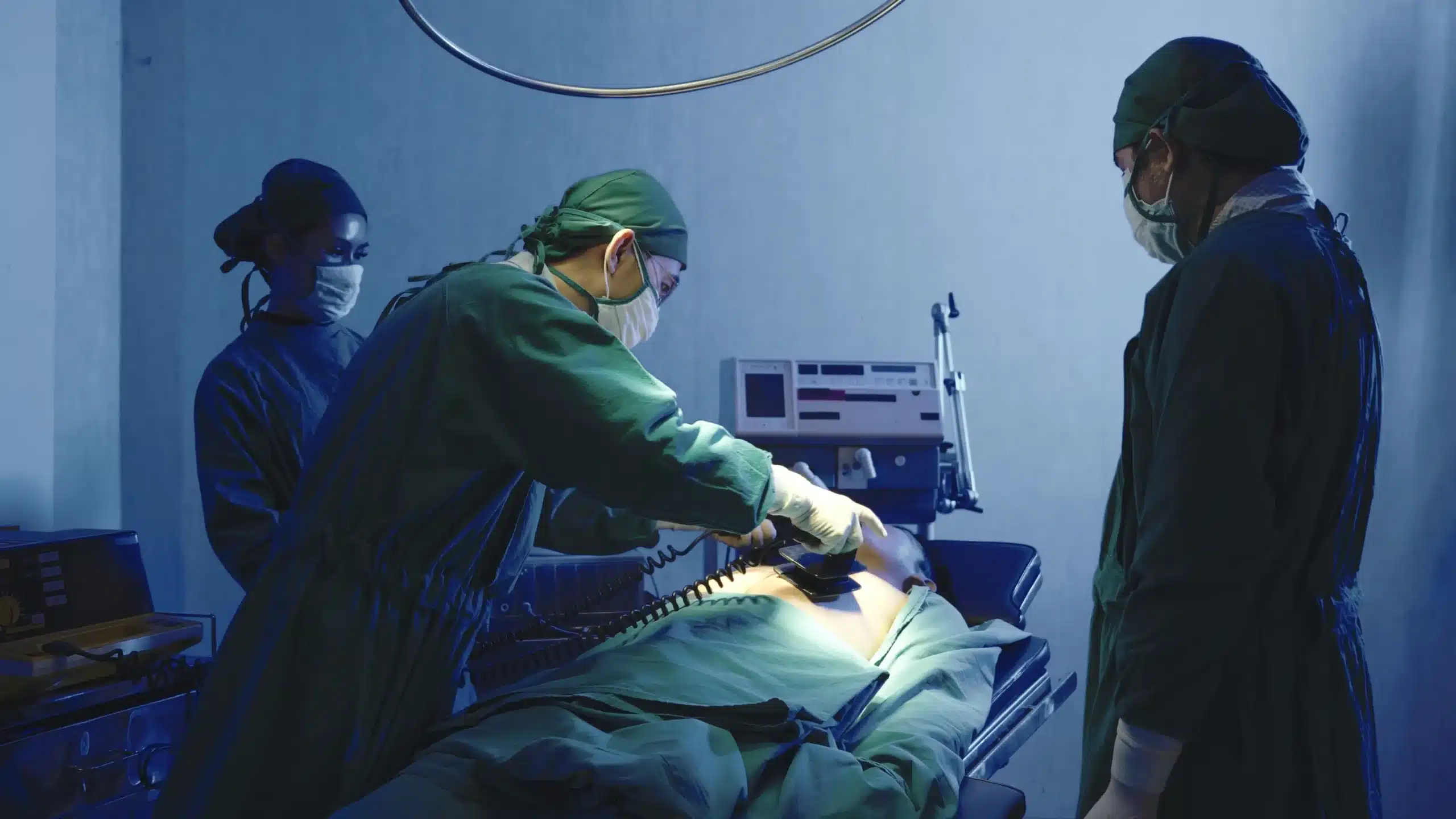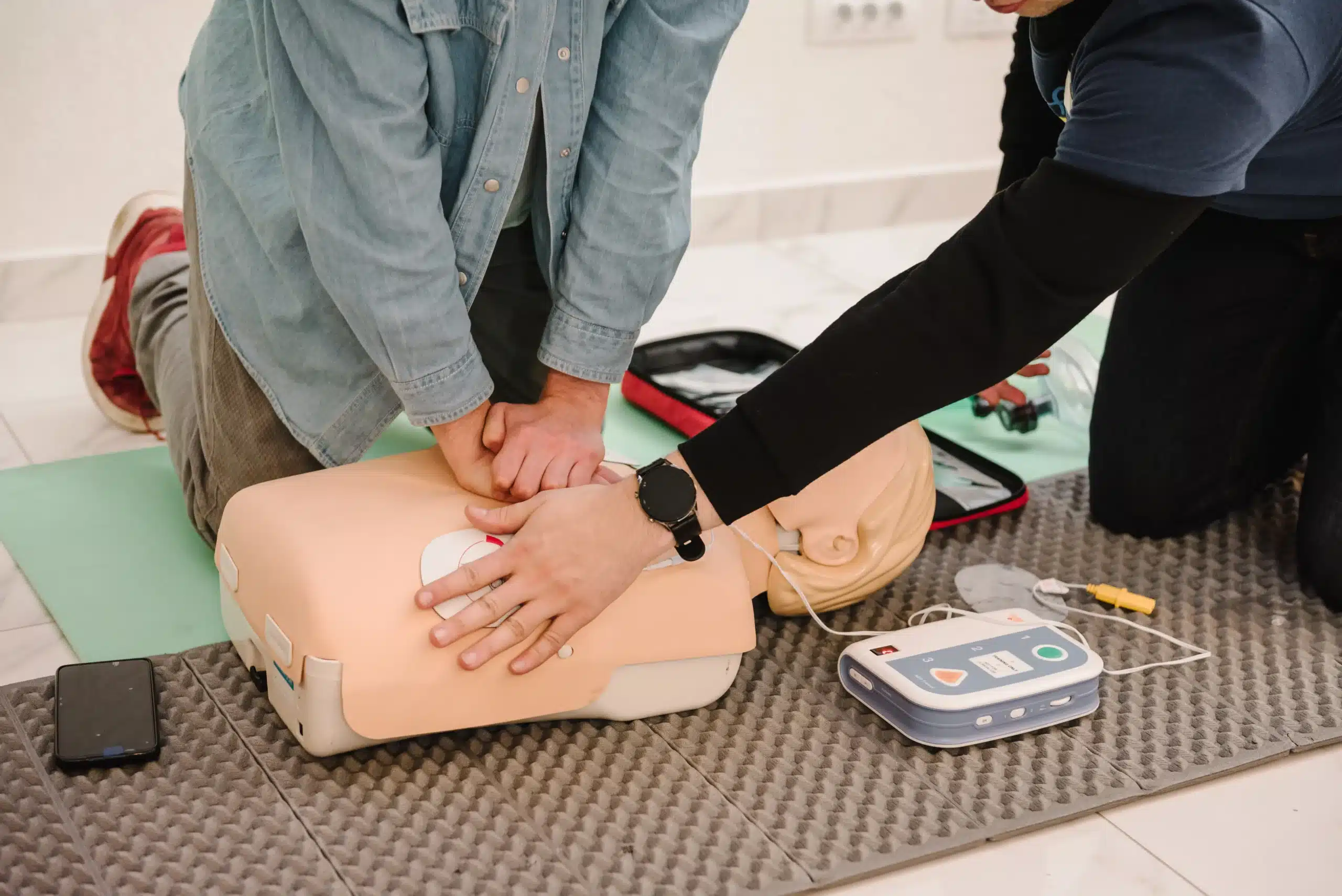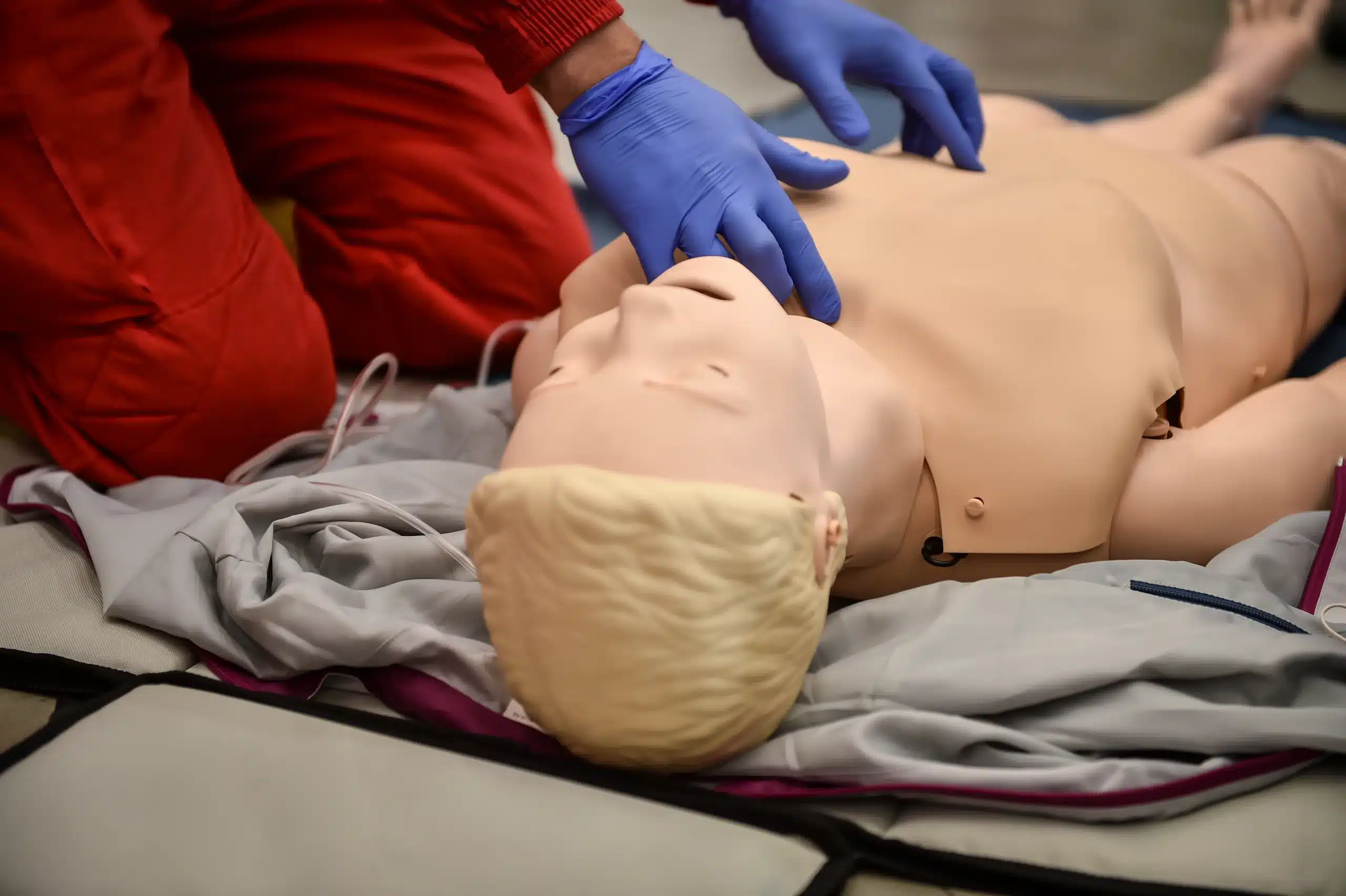Life throws curveballs, and knowing CPR can help you handle a medical emergency with confidence. But what happens when your certification expires? Don’t worry, CPR renewal in Alameda is straightforward. This article walks you through the process, explaining how often to renew, where to find certified courses, and what to expect in a renewal class. We’ll also explore the costs, discuss available discounts, and compare in-person and online options. Plus, we’ll debunk some common myths about CPR renewal and offer tips for staying CPR-ready between renewals. Let’s ensure you’re always prepared to make a difference.
Key Takeaways
- Stay current with your CPR skills: Regular practice and renewal within 30 days of expiration keeps your skills sharp and allows for refresher courses instead of retaking the entire class.
- Find a certified provider in Alameda: Many options exist, including Safety Training Seminars, which offers various AHA courses and a low-price guarantee. Compare prices and course content before registering.
- Choose the right learning format and stay prepared: Consider in-person training for hands-on practice or online courses for flexibility. Regardless of format, keep your skills fresh between renewals by reviewing techniques and staying updated on the latest guidelines.
What is CPR Renewal?
CPR renewal keeps your CPR skills sharp. Certifications typically expire after two years because skills can fade over time. Regular renewal ensures you’re prepared to respond confidently in an emergency. It’s similar to renewing a driver’s license—you periodically refresh your knowledge. Plan to renew your CPR certification within 30 days of its expiration date to avoid retaking the entire course. Staying current with your training could make a critical difference in a crisis.
Renew Your CPR Certification in Alameda: When and How
Knowing when and how to renew your CPR certification is key to staying prepared for emergencies. This section breaks down the process so you can keep your skills current and your certification valid.
How Often Should You Renew?
CPR guidelines and recommendations can vary. While some organizations suggest annual renewal, most CPR certifications, like those from the American Heart Association, are valid for two years. It’s important to remember that these skills can fade with time. Regular practice and renewal every two years helps ensure you’re ready to respond effectively if a real-life situation arises. Check your certification card for the expiration date so you can stay on top of your renewal schedule.
Renewal Steps
Renewing your certification is straightforward. Ideally, renew your CPR training within 30 days of its expiration. This often allows you to take a refresher course rather than repeat the entire course. Start by checking the expiration date on your current certification card. Then, find a certified provider in Alameda offering renewal courses. Safety Training Seminars offers a variety of American Heart Association courses, including CPR, BLS, ACLS, and PALS, right here in Alameda. They also offer a low-price guarantee, making them an affordable and convenient option for locals. Once you find a class that fits your schedule, simply register and attend. You’ll review essential skills and learn the latest guidelines.
Top CPR Renewal Courses in Alameda
Finding the right CPR renewal course can feel overwhelming, but several excellent providers in Alameda make the process straightforward. Here’s a rundown of some popular options:
Safety Training Seminars
Safety Training Seminars offers a comprehensive range of certifications, including CPR, BLS, ACLS, PALS, and First Aid. As an American Heart Association (AHA) Training Center, they provide same-day certification cards upon completion of their CPR courses. Classes are held daily at their Alameda location. Check their website for the most up-to-date schedule and to explore their various programs, including BLS renewal, ACLS, and PALS.
CPR Education
CPR Education provides CPR and First Aid certification courses in Alameda, meeting both AHA and American Red Cross standards. Their CPR renewal courses ensure your certification remains valid for two years. They offer a convenient way to maintain your essential skills and knowledge.
American Red Cross
The American Red Cross is a well-known provider of CPR training. They offer a variety of CPR classes, including CPR renewal courses, designed for individuals and organizations. Their established curriculum and widespread recognition make them a reliable choice.
American Heart Association
For healthcare professionals seeking BLS, ACLS, and PALS renewal, the American Heart Association’s RQI (Resuscitation Quality Improvement) program offers a modern and efficient certification process. This program ensures healthcare providers maintain the highest standards of resuscitation skills. Safety Training Seminars offers these AHA courses in Alameda.
Bay Area CPR
Bay Area CPR provides AHA-compliant courses in CPR, BLS, ACLS, and PALS. They offer flexible scheduling options, including on-site training, making it easier to fit renewal into your busy schedule. Their focus on convenience and accessibility makes them a practical choice for many.
CPR Renewal Costs in Alameda
Knowing the price range for CPR renewal helps you budget and find the best value. This section breaks down typical costs, potential discounts, and how to find the lowest prices in Alameda.
Typical Prices
In Alameda, CPR renewal courses typically cost between $50 and $100. The exact price depends on the provider, the type of certification (like BLS or Heartsaver CPR), and whether you choose an in-person or blended learning course. Safety Training Seminars offers a variety of courses to meet different needs and budgets. It’s always a good idea to compare prices and course content before registering for a class.
Discounts and Promotions
Many CPR training providers in Alameda offer discounts. You might find lower prices for students, military personnel, first responders, or groups. For example, some organizations provide discounts for students currently enrolled in accredited programs. Safety Training Seminars offers discounts for groups. Don’t hesitate to ask about potential discounts—they can make training more affordable.
Low Price Guarantees
Some CPR training centers in Alameda offer low price guarantees. This means they promise to match or beat a competitor’s lower price for a comparable course. A low-price guarantee helps ensure you’re getting the best possible value for your CPR renewal. If you’re looking for affordable options, check if a provider offers this guarantee.
In-Person vs. Online CPR Renewal: Choose the Right Fit
Deciding between in-person and online CPR renewal depends on your learning style, schedule, and workplace requirements. Both options have advantages, so consider the pros and cons to find the best fit.
Benefits of Hands-On Training
In-person CPR renewal offers hands-on practice with certified instructors. This interactive environment lets you ask questions, receive immediate feedback, and develop the muscle memory crucial for performing CPR effectively. The physical nature of CPR is demanding, and in-person training ensures you’re comfortable with the techniques. While convenient, online courses often lack the tactile experience of performing compressions on a manikin and practicing rescue breaths. This hands-on practice can significantly improve survival rates during cardiac arrest.
Convenience of Online Courses
Online CPR renewal courses offer significant flexibility. You can complete the coursework at your own pace, fitting it around your schedule. This is especially helpful for those juggling work, family, or other commitments. While online courses may require a computer or tablet, they eliminate travel time, saving you time and money. However, online courses typically involve self-directed learning. You’ll need discipline and motivation to complete the material without the structure of a classroom.
Certification Acceptance
Before choosing a renewal method, confirm your workplace accepts online CPR certifications. While convenient, online certifications may not meet all workplace requirements. OSHA, for instance, generally doesn’t accept online-only CPR training for workplace certification. In-person training typically fulfills these requirements and often provides a same-day certification card. Check with your employer or regulatory bodies to ensure your chosen renewal method aligns with their specific guidelines. CPR certifications are usually valid for two years, so staying current is essential.
What Happens in a CPR Renewal Course?
So, you’re ready to renew your CPR certification—smart move! But what exactly does a renewal course entail? Here’s a quick rundown of what you can expect.
Course Length
CPR renewal courses move quickly, focusing on refreshing your existing knowledge and skills. The online portion, which covers key concepts and procedures, typically takes one to two hours for Basic Life Support (BLS) training. More advanced certifications like Advanced Cardiovascular Life Support (ACLS) and Pediatric Advanced Life Support (PALS) usually require around three to four hours online. When you choose your course with Safety Training Seminars, you can find the perfect fit for your schedule.
Skills Assessment
You’ll demonstrate your CPR skills using a voice-assisted manikin (VAM). This high-tech tool provides real-time feedback on your technique, ensuring you’re performing compressions and breaths correctly. The VAM assessment doesn’t require a live proctor to be present, so you can focus on your skills without added pressure. However, phone support is available if you have any questions or need help. Learn more about our skills assessments on the Safety Training Seminars website.
Written Exam
After reviewing the material and practicing your skills, you’ll take a written exam to confirm you’ve grasped the key concepts. A little prep work goes a long way. Watching pre-course videos, often offered by providers like Bay Area CPR, can significantly improve your understanding and boost your confidence.
Same-Day Certification
One of the best parts? You’ll receive your certification card the same day you complete the course. This means you’re ready to go right away, with up-to-date credentials that demonstrate your commitment to providing lifesaving care. Safety Training Seminars offers same-day certification for many of our courses, so check out our website for more details.
CPR Renewal Myths Debunked
It’s easy to fall prey to misconceptions about CPR renewal. Let’s clear up some common myths so you can stay on top of your certification.
Expiration Dates
One common myth is that CPR certifications last forever. Unfortunately, that’s not true. CPR certifications are typically valid for two years. This is a standard across most organizations, including the American Heart Association. Knowing your certification’s expiration date is the first step in ensuring you’re always prepared for an emergency. Our CPR renewal courses in Alameda can help you stay up-to-date.
When to Renew
Another misconception is that you can renew your CPR certification at any time. While there’s usually some flexibility, it’s best to renew within 30 days of your expiration date. Waiting longer often means retaking the entire course instead of a simple refresher. Keep track of your expiration date to avoid unnecessary time and expense.
Online Course Acceptance
The rise of online learning has led some to believe that any online CPR course will meet all requirements. However, online-only CPR certifications may not satisfy workplace standards. For example, OSHA generally doesn’t accept them for workplace certification. If you need CPR certification for your job, double-check the specific requirements and make sure the course you choose meets them. Our in-person CPR classes in Alameda guarantee compliance.
Keeping Your Skills Sharp
Finally, some assume that once certified, their CPR skills will always be sharp. The truth is, skills can fade over time. Regularly reviewing CPR techniques and practicing is essential. Even if your certification isn’t due for renewal, consider refreshing your knowledge with online resources or short refresher courses. This will help you stay confident and prepared should a real emergency arise. We offer a variety of CPR courses to help you stay prepared.
Find the Right CPR Renewal Provider in Alameda
Choosing the right CPR renewal provider is crucial for receiving quality training and ensuring your certification meets the necessary standards. Here’s what to consider:
Accreditation and Recognition
Look for a provider offering American Heart Association (AHA)-approved courses. This accreditation guarantees your training aligns with nationally recognized guidelines and is accepted by most employers. Safety Training Seminars offers AHA-approved CPR, BLS, ACLS, PALS, and First Aid training, ensuring high-quality instruction.
Instructor Qualifications
Experienced and knowledgeable instructors are essential for effective CPR training. Research instructors and look for testimonials and reviews. Experienced instructors can significantly impact your learning. You can find information about CPR instructors in Alameda at CPR Education.
Flexible Scheduling
CPR renewal can be challenging to fit into a busy schedule. Choose a provider with flexible class times. Safety Training Seminars offers classes daily at their Alameda location (2059 Clinton Ave, Suite 2F), making it easier to find a time that works for you.
Group Discounts and On-Site Training
If you need CPR renewal for a group, inquire about discounts and on-site training. Many providers offer these options, making training more affordable and convenient. Bay Area CPR offers group discounts and on-site training, eliminating travel time and allowing for customized instruction. Contact providers directly to discuss your group’s needs.
Get Ready for Your CPR Renewal Class
Getting ready for your CPR renewal class doesn’t have to be stressful. A little preparation goes a long way! Here’s what you need to know for a smooth and efficient experience.
Required Documentation
For a seamless renewal, start the process about a month before your current CPR certification expires. This gives you ample time to complete the required training and avoid a lapse in your certification. Check your current CPR card for the expiration date and register for a renewal class beforehand. Knowing when your certification expires helps you plan ahead and stay current.
What to Bring
Once registered, confirm what to bring to class. Most providers supply equipment, but it’s always wise to double-check. Bring your current certification card and a photo ID for a smooth check-in process.
Pre-Course Study Materials
Want to feel confident during your skills test? Review pre-course videos or materials beforehand. Brushing up on techniques and procedures can significantly improve your performance and confidence during the practical assessment. Many providers offer these resources online, making it easy to fit review time into your schedule. Even a quick refresher can make a big difference.
Stay CPR-Ready Between Renewals
It’s great that you’re CPR certified, but your certification is just the beginning. Staying sharp on your skills between renewals is key to confidently responding in a real emergency. Here’s how:
Practice Techniques
CPR certifications are typically valid for two years, and it’s easy for skills to fade. Regular practice is the best way to keep your muscle memory fresh and your responses quick. Grab a CPR manikin if you have access to one, or visualize the steps and practice chest compressions and rescue breaths on a pillow. Even a few minutes of practice every month can make a big difference. The American Heart Association offers helpful resources for refreshing your CPR techniques.
Guideline Updates
CPR guidelines can change as medical knowledge evolves. Staying informed on the latest recommendations is crucial for providing effective care. The American Heart Association website is a great resource for checking current guidelines and any updates since your last certification. Knowing the latest techniques ensures you’re prepared to handle emergencies effectively.
Additional Training
Consider supplementing your CPR certification with additional training. First aid courses often complement CPR and equip you to handle a broader range of medical situations. You can also explore advanced certifications like ACLS (Advanced Cardiovascular Life Support) or PALS (Pediatric Advanced Life Support) to expand your skillset. These courses can deepen your understanding and boost your confidence in responding to various emergencies. Safety Training Seminars offers a variety of training options in Alameda.
Related Articles
- Why CPR is Essential for Saving Lives
- CPR Certification in Alameda: Your Comprehensive Guide – Alameda CPR Classes
- BLS CPR Courses in Alameda, CA – Alameda CPR Courses
- Debunking Common CPR Myths for Life-Saving Confidence
- Online CPR Classes in Berkeley: Your Complete Guide – Alameda CPR Classes
Frequently Asked Questions
How often do I need to renew my CPR certification? Most CPR certifications are valid for two years. It’s a good idea to check your certification card for the specific expiration date and plan to renew within 30 days of that date. This often allows you to take a shorter refresher course.
What’s the difference between online and in-person CPR renewal? Online renewal offers flexibility, letting you learn at your own pace. In-person classes provide hands-on practice with a manikin and direct feedback from an instructor. While online renewal is convenient, some employers require in-person training, so it’s always best to check workplace requirements.
What can I expect during a CPR renewal course? Expect a review of key CPR principles and techniques. You’ll likely have a skills assessment using a manikin and a written exam. Many providers offer same-day certification cards upon successful completion.
How much does CPR renewal cost in Alameda? CPR renewal typically costs between $50 and $100 in Alameda. The price can vary based on the provider, the type of certification (CPR, BLS, etc.), and any discounts you might qualify for. Look for providers offering low-price guarantees or discounts for groups, students, or first responders.
How can I stay up-to-date on CPR between renewals? Regularly practicing your CPR techniques is essential. Even without a manikin, you can visualize the steps and practice compressions and breaths. Also, stay informed about any updates to CPR guidelines by checking resources like the American Heart Association website. Consider adding first aid training or more advanced certifications like ACLS or PALS to your skillset.


